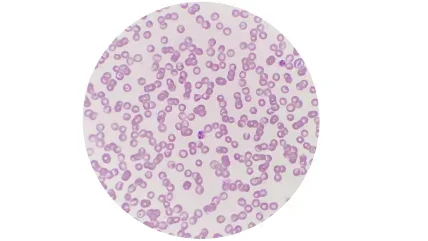
60 Degrees Pharmaceuticals has entered into a patent licensing agreement with Yale School of Medicine and Yale School of Public Health (together referred to as Yale) to advance the development and potential commercialisation of tafenoquine.
The collaboration focuses on its use as a treatment and preventive therapy for babesiosis, a tick-borne illness that affects red blood cells. It builds on ongoing research between the organisations that began with evaluating tafenoquine’s therapeutic activity against babesiosis.
60 Degrees Pharmaceuticals CEO Geoff Dow said: “This agreement demonstrates the growing confidence 60 Degrees Pharmaceuticals, Yale School of Medicine, and Yale School of Public Health have in the potential that tafenoquine is now showing as a next-generation therapeutic for babesiosis.
“Today, a babesiosis patient who progresses past the initial stages of mild symptoms may have limited treatment options. If approved, tafenoquine has the potential to meet this growing unmet need.
“Tafenoquine also has the potential to become the first prophylaxis available for babesiosis.”
Although the compound is not approved by the US Food and Drug Administration (FDA) for this indication, prior studies and reported cases have highlighted its potential relevance for individuals with relapsing forms of the disease.
Babesiosis is caused by the Babesia parasite and transmitted through bites from black-legged ticks, also known as deer ticks, which is the same vector responsible for Lyme disease.
The disease has been classified as orphan due to its relative rarity but carries significant risks for elderly and immunocompromised individuals.
Coinfection with Lyme disease is a noted concern, with estimates suggesting that up to 10 percent of Lyme patients may also be infected with Babesia. This equates to approximately 47,600 coinfections annually, based on data from the estimated 476,000 new Lyme disease cases in the US each year.
60 Degrees Pharmaceuticals is currently sponsoring a Phase 2 clinical trial in the US to assess the safety and efficacy of tafenoquine in patients with severe babesiosis.
The trial, now in the enrolment stage, is taking place at several locations including Tufts Medical Center, Yale University, Rhode Island Hospital, and Brigham and Women’s Hospital.
The study follows a double-blind, randomised, placebo-controlled design and compares tafenoquine with a placebo in hospitalised patients receiving standard-of-care treatment.
Two primary endpoints will be used to assess treatment impact: time to sustained clinical resolution and time to molecular cure, both measured using an FDA-approved nucleic acid test.
The trial intends to enrol at least 24 patients, with the option to increase this number to 33 based on interim analysis results. This analysis will evaluate statistical significance and allow for reassessment of sample size requirements.
Tafenoquine belongs to the 8-aminoquinoline class of drugs, which also includes primaquine. The class has been studied extensively for antiparasitic use.
The drug was originally discovered by the Walter Reed Army Institute of Research and is currently approved for malaria prevention in the US under the brand name ARAKODA, and in Australia as KODATEF.
Commercial distribution of ARAKODA began in 2019 and the drug is available in pharmacies in both countries via prescription. It is indicated for the prevention of malaria in travellers visiting endemic regions.
Tafenoquine’s long terminal half-life of approximately 16 days allows for less frequent dosing, which, according to the US Centers for Disease Control and Prevention, is advantageous for long-term prophylaxis.
The approved regimen for ARAKODA involves a three-day loading phase with two 100 mg tablets taken daily, followed by weekly doses of the same amount during travel, and one final weekly dose after returning from an endemic area.
While the safety of tafenoquine has been evaluated in five clinical trials lasting up to six months, it is not approved for babesiosis and has not yet demonstrated proven efficacy for this use.






